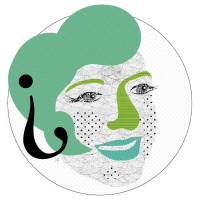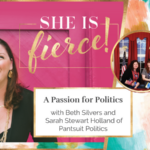Dear Mr Donald Trump.
May I introduce myself; My name is Fatima Khan.
I am an independent Muslim woman, well educated in the Sciences and having read Arabic at secondary school level. My interests are many and varied and include various forms of sport, reading, movies, watching television, listening to music and cooking, when the mood arises. I value the art of open communication, love smiling, have a life partner whose names carry the weight of the prophets known for their personality traits of loyalty in friendship, their love of peace, wisdom, patience and fortitude.
My boy child, whose name translates roughly from the Arabic into ‘splendour, light, glow’ is both my pride and the one person who tries my patience the most. His name, as I have since learnt, was also the name of a 14th century Islamic Indian historian. I try to lead an authentic life, appreciate the value of lessons learnt from History, have worked in the educational sector for most of my life, and have an insatiable thirst for knowledge. The listing of these attributes may lead you to believe erroneously that I am not humbled by the gifts bestowed upon me, so let me also add that I absolutely cannot maintain a tidy household! I live in Pietermaritzburg and I am not a blindly patriotic South African. Everything about me is as unique as my thumbprint, the way we were all created.
When many people meet me for the first time, they are bewildered by the fact that I follow the Muslim ideology, them having being indoctrinated via various subliminal messages into what exactly it means to be a Muslim woman in today’s world. This characteristic bafflement could be attributed to my style of dressing. I don’t wear the black, flowing ‘abaya’, neither do I cover my hair which is cut in a very short style, I believe is appropriate for my chosen lifestyle, but I do try to dress modestly. While many consider the outward manifestations of dressing, as an integral part of one’s cultural and religious identity, I prefer to believe that this part of my identity should be kept closest to my heart from whence the acceptance of the belief stems, and should be privy only to those dearest to me, and the one above.
So, what/who do I believe is the ‘ideal Muslim woman’? There are numerous examples of Muslim women achieving highly in their chosen fields of endeavour, I like to say that we should remove the prefix ‘Muslim’, when describing them, but I will continue to just look at some of my personal traits. The inherent value of gathering knowledge throughout one’s life is well-illustrated in the first chapter revealed of the Noble Quran, which is entitled ‘Al Iqra’ (The Clot) “Read! In the Name of your Lord, who created (all that exists); created man from a clot. Read! And your Lord is the Most Generous”. The first verse emphasised the necessity of reading, which is often interpreted to mean the gathering of knowledge.
As with many great works of wisdom, the Quran has several layers of meaning and subtexts, and one has to study the ‘tafseer’ or various intepretations of the text, in order to derive fully the significance of the original text. This is where the Hadith (sayings or favoured actions of the Prophet Muhammed and his contemporaries) could assist, but is often misunderstood due to the patriarchal values which were dominant in 570 – 632 CE (common era), and are still prevalent today.
One of the Hadith states ‘Seek knowledge from the cradle to the grave’. Note that there is no supposition of the gender to which this Hadith is directed, and it is in fact advice that is applicable to both women and men. The 19th century poet, Diwan Hafiz Ibrahim (The Poet of the Nile) was succinct in describing the role that mothers play in the lifelong education of their children when he wrote “The mother is a school: if you prepare her properly, you will prepare an entire people of good character, The mother is the first teacher, foremost among them, and the best of teachers.”
If we continue looking closely at the first verse which was revealed, you would notice that it is titled ‘The Clot’. Further reading of this chapter describes the beginnings of life from ‘a clot’. There are various chapters and verses scattered liberally throughout the Quran, describing the origin of life, the galaxies, the solar system, long before formalised scientific study had reported on these phenomenon. Albert Einstein is often quoted as saying “Science without religion is lame, religion without science is blind” (Richard Dawkins may disagree) and the acceptance of Science within Islam may be illustrated by listing just a few of the renowned 12th -14th century scientists who followed the Muslim ideology, namely, Muhammad ibn Mūsā al-Khwārizmī (father of Algebra), Ibn Sina or Avicenna (fundamental concept of momentum in Physics) and Jabir Ibn Hayyan or Geber (introduction of the experimental method in Alchemy). There is, however, some doubt that the works attributed to Jabir Ibn Hayyan, were actually his works, but it is undisputed that these writings were based on Islamic theories on Alchemy. Education, as we know it today, based on the attainment of formal degrees and qualifications, is not necessarily an indicator of a person’s knowledge base.
Knowledge may be gained in myriads of ways. Some of the basic ways of gathering knowledge include talking to a wide range of people having varied interests, and also reading very widely. After all, the printing press was only introduced to the West by Guttenburg in 1440, but books were available nearly 600 years prior to this revolution, and the history of the written word goes back even further to the papyrus scrolls in the 3rd century. The original form of communication was oral communication and today,’ word of mouth advertising’ is one of the most valued throughout the business sector. So, let’s just keep chatting, shall we?
If you read the history of Arabia in that period during which Islam dawned as a religion, you would notice that a number of strong female influences are mentioned repeatedly. Fatima bint Muhammed (daughter of the prophet Muhammed), was reputedly devoted to truth and honesty and her innate ability to nurse and heal the ill and wounded; Khadhija bint Khawaylid was an independent businesswoman, 25 years the senior of her life partner the prophet Muhammed and Aishah bint
Abubakr whom the prophet married after the demise of his first wife was well-known for her academic prowess, specialising in Islamic jurisprudence. These ladies rode fearlessly into battle as stated by Prophet Muhammed (PBUH) “From where can anyone get courage like you, O Umm ‘Umarah?”(I’m not sure I agree with the need for war, but war is almost always about financial gain, right?), and were celebrated for their many accomplishments, including their participation in various sporting fields. A commonly quoted Hadith of the Prophet Muhammed (PBUH) states “Teach your children male and female: Javelin throwing, swimming, and horse riding.” They were also noted for their particularly female abilities of creating harmony, using words, food, laughter, and smiles.
How am I different to these great women of Islam? I’m not, but I’m still a novice in life. However, a few of us ladies seem to have lost their way, and perhaps need to go back into History and rediscover our roots. Or, as my good friend, Saidi, from Zimbabwe, once said to me “You need to remember that we men were created from dust, while you ladies, were created from something much stronger, the rib of man!”.
Thank you, Mr Trump, for taking the time to read my letter. I hope that it illustrates for you that we’re all just individuals trying to live our best lives, and we are not allowing detrimental labels dictate who we should or should not be.
Respectfully,
Fatima Khan

Fatima Khan




Be the first to comment